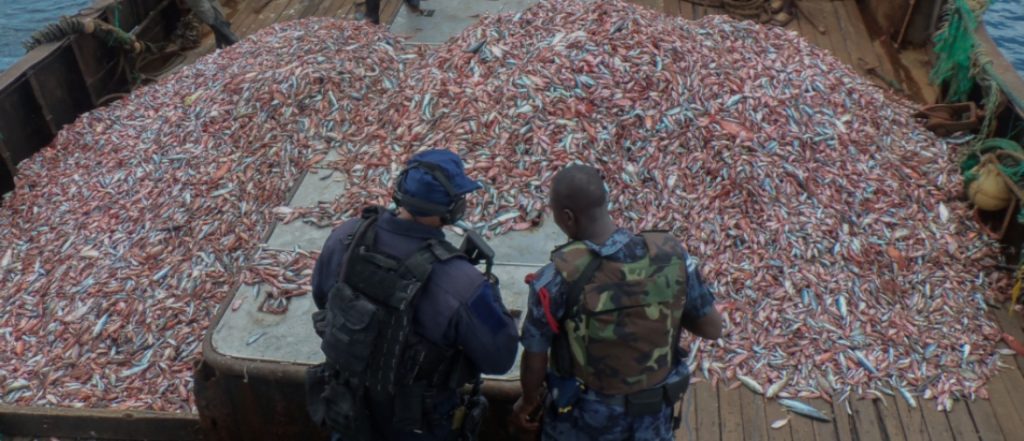In September 2017, the Stimson Center, the U.S. National Maritime Intelligence-Integration Office (NMIO), National Geographic, and the Waitt Foundation hosted a meeting of 100 experts on illegal, unreported, and unregulated (IUU) fishing. Attendees represented entities across the U.S. government, several foreign governments and non-governmental organizations, as well as the private sector. The purpose of the meeting was to discuss current enforcement efforts against IUU fishing, with a focus on marine protected areas (MPAs). The participants identified next steps to increase international, national, regional and sub-regional enforcement frameworks.
In light of the United Nations’ (UN) Sustainable Development Goals (SDGs) and the Aichi Targets to protect 10 percent of the ocean by 2020, governments have upped their efforts to create MPAs. This is good news. Recent research has shown that no-take marine reserves are highly effective in protecting and restoring marine biodiversity, increasing fish stocks and making the ocean more resilient to the effects of climate change. But equally important are efforts to move beyond the designation of MPAs toward management and enforcement. To ensure that protected areas are not merely lines on a map where IUU and unsustainable fishing can continue without consequence, MPA managers are seeking innovative ways to implement stronger monitoring, management, and enforcement mechanisms.
Worth $15.4 to 36.5 billion annually, IUU fishing creates not just ecological and economic pressures, but also converges with a range of other security threats. For example, transnational criminal networks have been known to exploit the fishing industry to traffic weapons, drugs and even humans. Additionally, as fisheries become depleted, competition over increasingly scarce stocks are likely to escalate geopolitical tensions. In fact, we have already begun to see the effects of such competition in areas such as the South China Sea.
Mounting recognition of these threats has spurred a conversation about the security dimensions of what was considered, until recently, primarily a conservation issue. At the same time, there has been a proliferation of technologies to monitor fisheries and illegal activities. Now the key to reducing IUU fishing is to leverage that technology for targeted enforcement efforts.
The NMIO meeting was a benchmark in government-NGO efforts to rally behind this issue and to advance a security-based approach to combatting IUU fishing. The meeting stands out because of its focus on actionable solutions and innovative partnerships, several of which were forged during the two-day meeting. For example, the meeting effectively broadened the community of interest and action around this issue by convening experts and entities from both the security and conservation, governmental and non-governmental communities. These groups have not typically worked side-by-side in partnership to combat IUU fishing. A core goal of the meeting was to crowdsource solutions from the different types of organizations, with different focuses, and to forge relationships that can build comprehensive and innovative solutions to this multidimensional threat.
During the meeting we developed an action-oriented and network-based approach to the problem of IUU fishing in MPAs and enforcement at the ports in two specific countries—Chile and Costa Rica. Through gaming exercises using real situations in these two nations, it reinforced the understanding that perpetrators of IUU fishing and other fisheries crimes are often networked and adaptable to the environment around them. They are able to evolve their practices to outpace enforcement efforts. Collectively, we agreed on the need for a network of enforcers who can take action and respond effectively to the agility of the perpetrators.
The two-day meeting broadened the community of interest around IUU fishing enforcement. It brought together a new kind of network, dubbed “the network of action.” The answer from participants was resounding—networks, like communities of interest, need to be broadened in order to put an end to IUU fishing and the associated threats.

